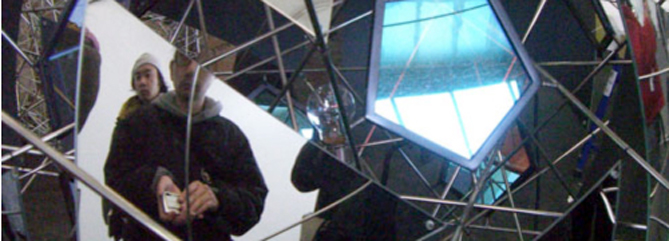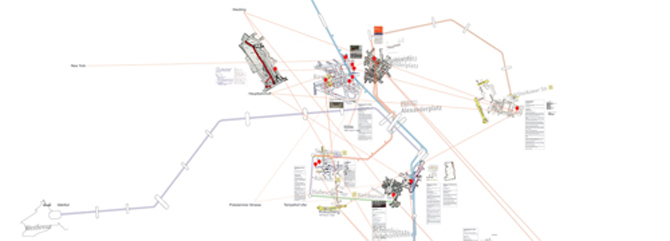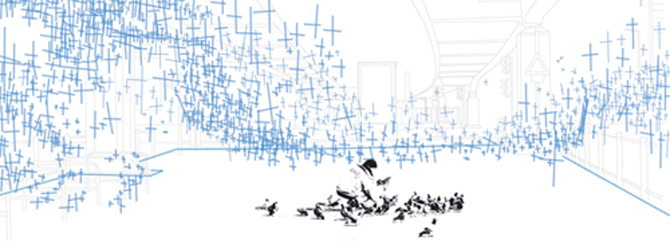Architectural Association School of Architecture
4 - 12 September 2009

The exceptional status of Berlin as an island with its own rule system has given rise to various phases of intense creative production throughout its history. This output – erratic but often highly influential – is inscribed in the city’s fabric as an inventory of past and present experimentation and fragmented manifestos.
In recent years, Berlin has emerged as a major platform for contemporary cultural production within Europe. Labelled ‘poor but sexy’, it has been colonised by a vast creative community making use of the city’s unique economic and spatial conditions and its concentration of skills.
AA Berlin Laboratory is an intensive workshop that explores modes of creative production and their manifestations in the city. Using Berlin as a field for investigation and intervention, it aims to trace the complex relationship between cultural production and the city. The role of experimentation is at the core of this inquiry.
AA Berlin Laboratory will pair AA and Berlin-based skills. Individual workshop units will be headed by interprofessional teams with backgrounds in architecture, science, art and creative disciplines. The Laboratory is open to students and professionals of architecture and related fields interested in exploring architectural practice and forms of interprofessional production. It will be accompanied by a series of public events. AA tutors Olaf Kneer and Marianne Mueller are Programme Directors.
Directors: Marianne Mueller & Olaf Kneer
Tutors: Stefano Rabolli Pensera, Jens Casper, Sven Pfeiffer, Christopher Dell
Guest Speakers: Rory Maclean, Prof. Jörg Rheinberger
Jens Casper and Sven Pfeiffer

The unit investigated how in recent years the art world has started to re-shape the city of Berlin. Tactical, operative and adaptive forms of cartography produced a series of mappings which explored and conceptualized the relationships between networks of artists, collectors, curators, galleries and the spaces they inhabit.
Unit 1 produced a large scale collaborative map with several layers of information which created a deeper understanding of the urban dynamics present in Berlin, investigating how the borders between private engagement and public institutions have shifted, and how new collaborations and typologies emerged. A complex relationship between the art world and the urban fabric of the city of Berlin becomes apparent.
Christopher Dell and Stefano Rabolli Pensera

How can we turn Berlin's urban voids into new territories? How can we inhabit these voids by "making sense" of them rather than simply "occupying" them? Which spatial strategies can we adopt to domesticate spaces that have lost all apparent urban dimension?
Rejecting the two traditions of simply filling voids with "urban content" or the romantic attitude of leaving them as ruins, Unit 2 worked collaboratively to produce a series of 1:1 interventions in the city of Berlin, transforming existing sites with the aim of promoting new ways to inhabit Urban Voids.

